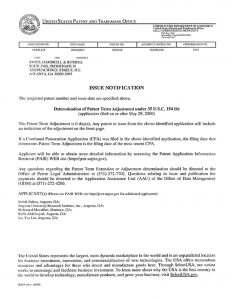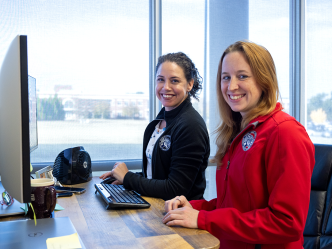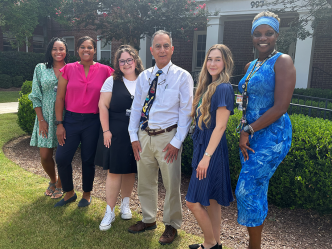In 2011, professional tennis player Venus Williams dropped out of the U.S. Open and revealed to the world that she had been diagnosed with an autoimmune disease, Sjogren’s syndrome.

Researchers at Augusta University recently obtained a patent for a predictive, diagnostic and prognostic kit that will help address issues surrounding Sjogren’s syndrome.
Sjogren’s syndrome is an autoimmune disease in which the body’s immune system, for unknown reasons, attacks the cells which produce saliva and tears. The result is dry eyes, dry mouth and even tooth decay, and if left untreated can progress to arthritis and, in rare cases, lymphoma. Patients also experience fatigue, nausea and pain.
The disease affects approximately 1 percent of the population, according to Dr. Babak Baban, associate professor in the Dental College of Georgia and the Medical College of Georgia. It also affects more women than men, and kept Williams away from her sport for almost two years.
Baban is an immunologist who is interested in finding cures for autoimmune disease. He partnered with Dr. Mahmood Mozaffari, professor of oral biology at DCG and Dr. Rafik Abdelsayed, professor of oral biology at DCG and professor of pathology at MCG, to study Sjogren’s Syndrome.
“We noticed that there are a few biomarkers which increase in the patient’s tissue and salivary glands when a person has Sjogren’s syndrome,” Baban said. “We worked on this biomarkers and looked at blood circulation and noticed that there is an increase in circulation systemically when the biomarkers increase.”
The team presented their data to Augusta University’s Office of Innovation and Commercialization. At the time, the research was in the preliminary stages, but it showed that Sjogren’s syndrome could be detected in the blood in the early stages.
They developed a method that would diagnose Sjogren’s syndrome with a simple finger prick. The protocol can also determine if a person is susceptible to the disease, if they have it and how treatment will affect each individual.
The next step was to submit a patent application to the U.S. Patent and Trademark Office. Almost three years later the USPTO approved the application and a patent was issued.
Now, the team will focus on further advancement to develop a kit with the ultimate goal of parterning with a pharmaceutical company to produce the kit.
Baban, Mozaffari and Adbelsayed are excited that their work is receiving recognition.
“It’s a great feeling to see that your efforts have been recognized not only by the university but by the federal authority,” Baban said. “This patent means they see the importance of the discovery and are recognizing it. It means they see the value in our research, feel that it is novel and there is a demand and a need for a diagnostic kit. The recognition is like someone saying, ‘you have something here that is worth being addressed.’ It feels great.”
 Augusta University
Augusta University




